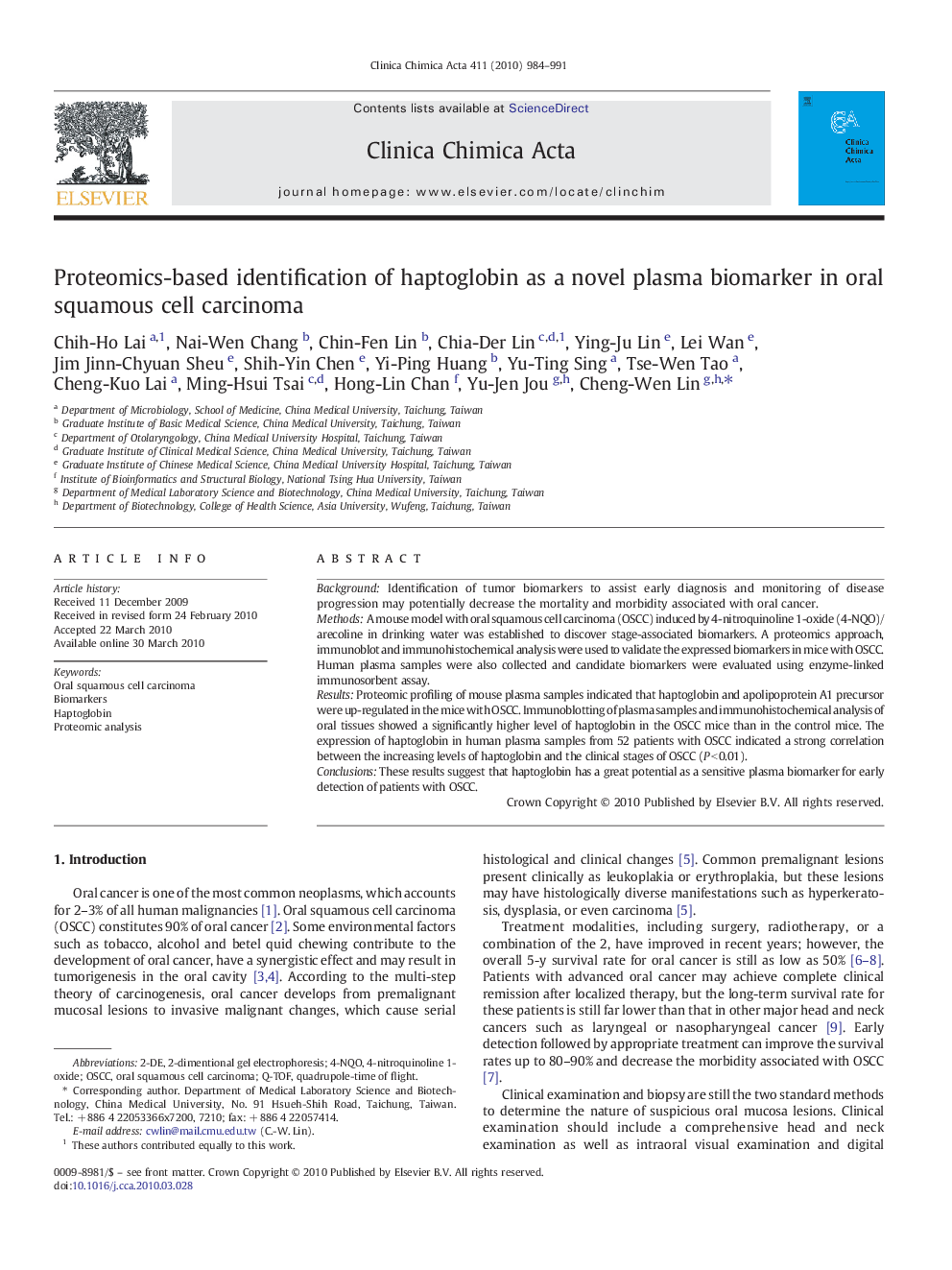| Article ID | Journal | Published Year | Pages | File Type |
|---|---|---|---|---|
| 1966271 | Clinica Chimica Acta | 2010 | 8 Pages |
BackgroundIdentification of tumor biomarkers to assist early diagnosis and monitoring of disease progression may potentially decrease the mortality and morbidity associated with oral cancer.MethodsA mouse model with oral squamous cell carcinoma (OSCC) induced by 4-nitroquinoline 1-oxide (4-NQO)/arecoline in drinking water was established to discover stage-associated biomarkers. A proteomics approach, immunoblot and immunohistochemical analysis were used to validate the expressed biomarkers in mice with OSCC. Human plasma samples were also collected and candidate biomarkers were evaluated using enzyme-linked immunosorbent assay.ResultsProteomic profiling of mouse plasma samples indicated that haptoglobin and apolipoprotein A1 precursor were up-regulated in the mice with OSCC. Immunoblotting of plasma samples and immunohistochemical analysis of oral tissues showed a significantly higher level of haptoglobin in the OSCC mice than in the control mice. The expression of haptoglobin in human plasma samples from 52 patients with OSCC indicated a strong correlation between the increasing levels of haptoglobin and the clinical stages of OSCC (P < 0.01).ConclusionsThese results suggest that haptoglobin has a great potential as a sensitive plasma biomarker for early detection of patients with OSCC.
